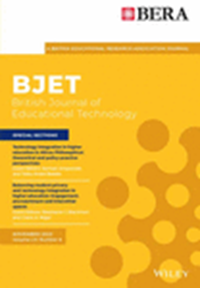Comparing quality and engagement in face-to-face and online teacher professional development
Abstract
In order for teachers to successfully gain new knowledge during professional development (PD), courses must be of high quality and stimulate active involvement from participants. More and more PD courses are taking place online, without clear evidence of whether face-to-face and online courses differ in terms of their quality or level of participants' engagement. The present study investigates differences between face-to-face and online PD with respect to certain quality characteristics: clarity and structure, cognitive activation, collaboration and practical relevance, as well as participants' behavioural, cognitive and affective engagement. The study is based on 2210 teachers from Germany who participated in 1 of 137 face-to-face or 54 online PD courses. Although participants rated face-to-face and online courses very positively regarding all quality characteristics and engagement dimensions, they evaluated online courses slightly less favourably compared to face-to-face courses. Implications for practice and research are derived to help ensure high-quality PD offerings in the future.
Practitioner notes
What is already known about this topic
- Face-to-face and online PD have the potential to be similarly effective.
- PD quality and participants' engagement can be assumed to be predictors of PD effectiveness.
- PD quality contains clarity and structure, cognitive activation, collaboration and practical relevance.
- Engagement is a three-dimensional construct composed of behavioural, cognitive and affective components.
What this paper adds
- PD quality was rated very positively for online and face-to-face courses.
- Participants rated the quality of online PD lower compared to face-to-face PD.
- Participants rated their engagement in online PD lower compared to face-to-face PD.
Implications for practice and/or policy
- PD format should always be chosen with which a higher benefit can be achieved.
- Quality assurance should take place before PD is conducted.


 求助内容:
求助内容: 应助结果提醒方式:
应助结果提醒方式:


